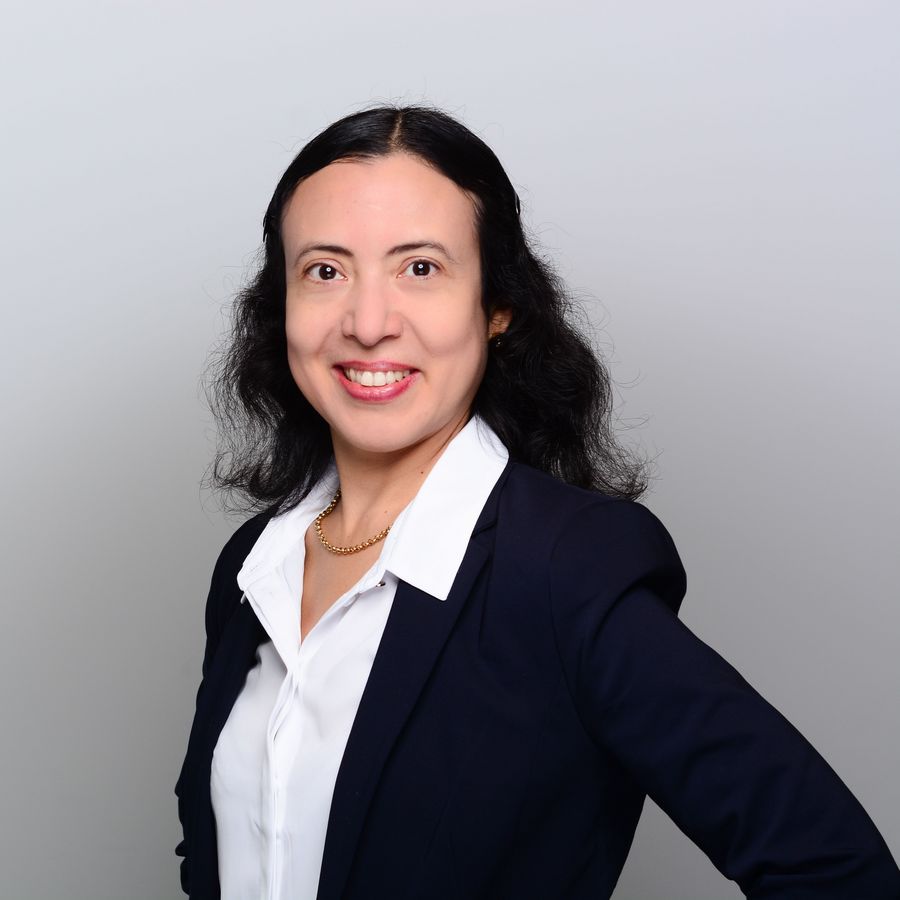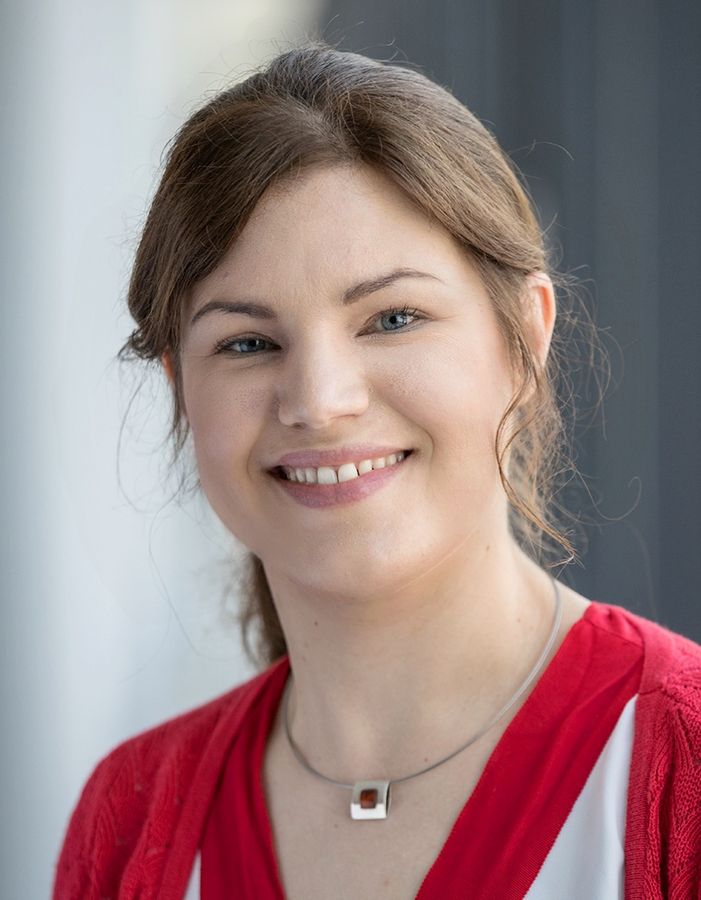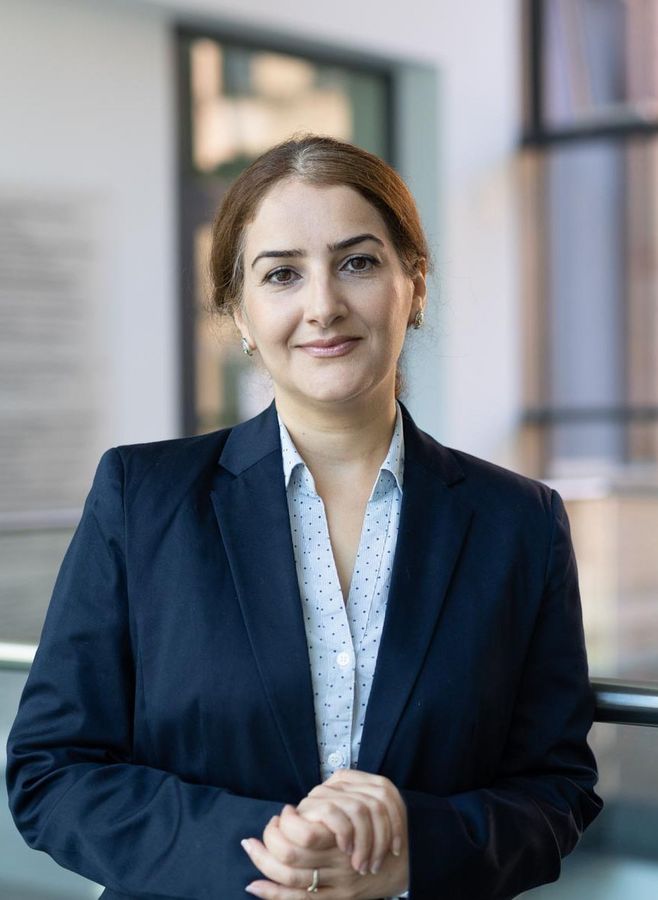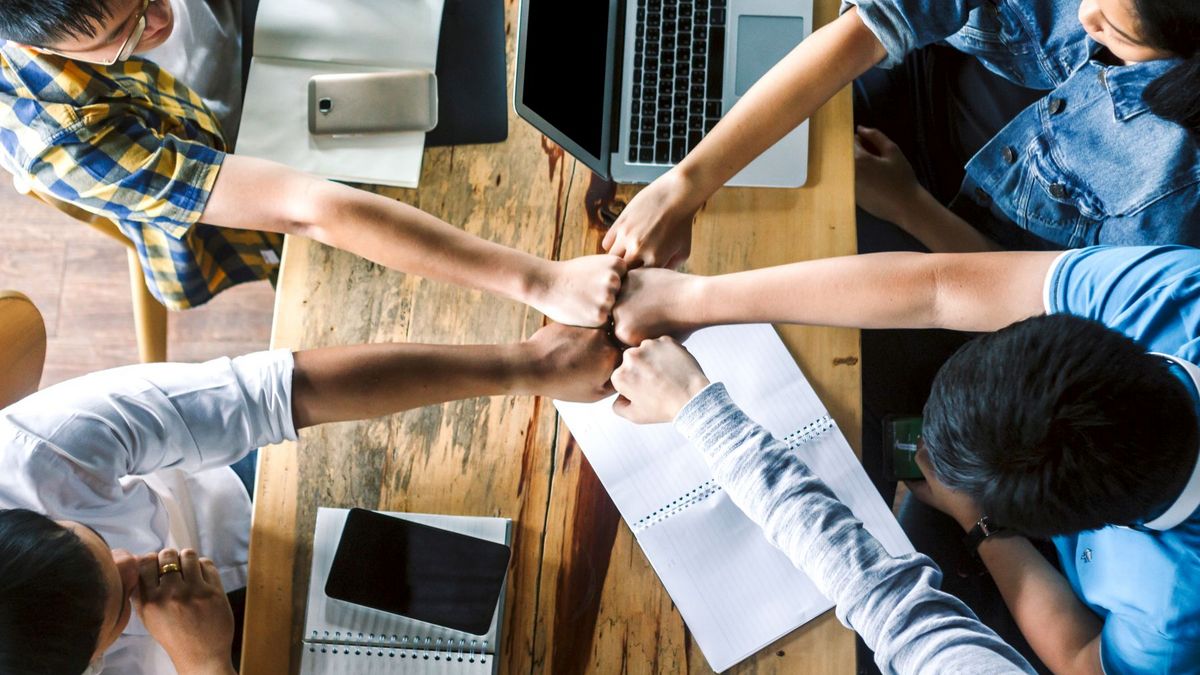The mentoring programme for female postdocs is a cross-university programme offered by the universities of Halle-Wittenberg, Jena and Leipzig. It offers support to advanced postdocs, habilitation researchers, junior research group leaders, and junior professors from all disciplines in their next career steps on the path to professorship. The female scientists receive personal support from experienced mentors as well as key competencies and professional contacts for efficient planning and pursuing a career in science.
Programme
The postdoctoral phase serves to qualify for a career in science with the goal of a professorship. UNIBUND mentoring aims to provide female scientists with guidance and empowerment in personal and professional terms during this period. The broad network of female postdocs from all disciplines promotes the cross-university transfer of knowledge and interdisciplinary exchange.
The program is accompanied by official kick-off, interim and closing events and consists of four building blocks:
- One-to-One-Mentoring
Individual advice and support on career-related issues and on integration into the scientific community - Topic-related peergroups
Exchange of information and experience as well as establishment of an interdisciplinary network with other female postdocs in UNIBUND - Training activities on career-related key competencies
Introductory workshop, offers on profiling and application strategies as well as leadership and management tasks in the science sector - Networking
Meetings following the kick-off, mid-term and closing events to establish and intensify interdisciplinary contacts
Experiences of alumnae of the program
Here you can read about the experiences of alumnae of the Leipzig University from the t.e.a.m. program for female postdocs.
You now hold a professorship in accounting/finance at IU International University, Berlin. What was the biggest challenge up to this point?
For me, as a native of Mexico, the biggest problem was getting to know the German education system with all its peculiarities and regulations. I noticed that the German education system is very competitive. Therefore, I had to clearly and unambiguously state my research focus and also represent it to the outside world. This involved building up my own networks. Moreover, even though the English language is widely used in the field of finance, I had to constantly work on my German language skills.
Now, in addition to being a scientist, you are also a chair manager - how do you reconcile these roles? What new things did you have to learn?
At the private university where I work, the range of tasks for professors is different than at public universities. I had to learn (and am still learning) to reconcile many things - in teaching, in supervising students, in exams, in administration, but also in research, which is very important to me.
You were a participant in the UNIBUND mentoring program. From which experiences and topics do you still benefit today?
The mentoring program gave me the opportunity to reflect on my professional career and career planning. This enabled me to gain profile in research and teaching. At the same time, the program helped me to work on my work-life balance.
Mentoring was an important program element during this time. What was the most valuable piece of advice you received and could you imagine taking on the role of a mentor yourself?
My mentor gave me the very valuable advice to continue being myself, to remain authentic and not to pretend. I also learned from her how important networks are in German higher education and how I can build such networks.
For the future, I can imagine being a mentor for others myself.
You now hold a professorship in cell biology at Heinrich Heine University in Düsseldorf. What was the biggest challenge up to this point?
One of the biggest challenges was learning, researching, simultaneously leading a group and hanging in there when something didn't go the way you thought it would.
Now, in addition to being a scientist, you are also a chair manager - how do you reconcile these roles? What new things did you have to learn?
That is indeed a new challenge. In particular, the bureaucracy has increased significantly and you learn a lot more about the processes at a university. Nevertheless, there is still time for research and that is nice.
You were a participant in the UNIBUND mentoring program. From which experiences and topics do you still benefit today?
The most helpful were the workshops that were regularly offered as part of the mentoring program. Here, I have very fond memories of the workshop "Standortbestimmung für die Wissenschaft: Karriereportfolio und Karriereplanung" by Mirjam Müller. This was not only because the coaching was really helpful, but also because in this context you got to know other participants better and could exchange ideas.
Mentoring was an important program element during this time. What was the most valuable piece of advice you received and could you imagine taking on the role of a mentor yourself?
The most important advice was "Have patience." Even though it wasn't always easy, this advice helped me a lot. I can very well imagine taking on the position of a mentor myself and have actually just started doing so here at Heinrich Heine University in Düsseldorf. There is a program here not so dissimilar to the one in Leipzig, the SelmaMeyerMentoring for young female scientists, in which I have been mentoring a habilitation student for a month. It's nice to share experiences.
What are your fondest memories of the t.e.a.m. program / UNIBUND mentoring and what experiences do you still benefit from today?
My fondest memory was my monthly chat with mentees of our cohort where we invested in our own growth and development, and extends to building relationships and influence with others. We empowered and encouraged each other to proceed to the next step in our scientific career.
What was the most valuable piece of advice you received from your mentor?
Be true to your values and don't be afraid of failure.
Why should other women participate in the program?
Postdoc step is quite challenging, thus, mentorship by an experienced successful professor is invaluable. In combination with dedicated career training courses and talks by powerful women leaders as offered by the t.e.a.m Program, I feel much better prepared and supported to reach my long-term academic goals. I think the t.e.a.m program is critical and ideal to further proceed. The t.e.a.m program improved my strengths and qualifications to overcome my weaknesses, to develop confidence, influence and resilience to rise above harmful political, social and cultural norms and to support my academic success. So, I strongly recommend the female postdocs to participate to the t.e.a.m program.
Information for mentees
The mentoring programme is aimed at highly qualified postdocs, habilitation researchers, junior research group leaders, and junior professors from all disciplines at the universities of Halle-Wittenberg, Jena, and Leipzig with at least two years of independent scientific activity following their doctorate and the career goal of a professorship. The mentees are individually supervised by experienced professors from their own or a related field. The mentors come from one of the two other universities in order to ensure a mentoring relationship free of hierarchy. The duration of the programme is one year. An extension for another year is possible.
The UNIBUND mentoring programme for female postdocs is coordinated at the Leipzig site as part of the t.e.a.m. programme. On the other hand, however, it is also considered an independent programme line at the Leipzig University. A willingness to network with other t.e.a.m. programme lines as well as active participation in the programme is therefore assumed. To make this possible, appointments are announced well in advance whenever possible. The mentoring tandem also only offers added value if the participants deal intensively with their own situation and show initiative towards the mentor in arranging appointments and in preparing and following up the meetings. At the start of the programme, the mentees receive a briefing to help them shape the mentoring relationship and understand their roles within the programme. Throughout the programme, project management and coordination are available to provide support.
During face-to-face events, it is possible to make use of free childcare. In order to ensure that this can be organized, the programme coordinator will ask about the need for childcare at an early stage of each event. In addition, other needs with regard to accessibility, such as assistance requirements or sign language interpretation, can be specified.
Information for mentors
Mentoring is based on the sharing of experience. At t.e.a.m., female postdocs benefit from the advice and support of professorial managers. The latter, in turn, gain insights into the needs of young female scientists through mutual exchange.
For the mentoring pool of the programme, we are continuously looking for female professors and professors of our university who want to engage with their knowledge and experience for female postdocs.
Before the start of the programme, mentors receive a briefing on their role as mentors, if required. At the beginning of each mentoring session, the mentor and mentee then draw up a joint agreement on objectives, which serves as an orientation and control instrument. To establish a successful mentoring partnership for both sides, regular contact between mentor and mentee is recommended. At best, this can take place in the form of personal meetings or digitally and can be supplemented by e-mail exchanges. The intervals between meetings should not exceed three months and should be estimated at one to two hours per meeting.
The mentorship is based on the initiative of the mentee, who encourages regular meetings and prepares and follows up on the content. On the part of the mentor, the focus is on the willingness to take time for the mentee's concerns and to work out solutions in a discursive exchange. If you have any questions about mentoring, please contact the project coordinator at any time.
Dates
Below is the programme schedule for the 2020–2022 and 2021–2023 cohorts. Prior to each event, mentees will receive an invitation asking them to register for each programme item.
- Kick off
Launch event (digital) - UNIBUND
8 July 2021 | 3pm–4pm - Alliances Talk
Personal development (digital)
4 October 2021 |16.30pm–6pm - Workshop
Career development in science (digital) - UNIBUND
14 October 2021 | 9am–4pm - Workshop
Shaping leadership - authentic and diversity-sensitive (digital) - UNIBUND
8 November 2021 | 9am–1pm - Expertise Talk
Dual Career and Appointment Process (digital)
11 November 2021 | 16.30pm–6pm - Workshop
Media Training (digital)
26 November 2021 |9am–4pm - Workshop
Collegial consulting - a method for dealing with hierarchical university structures (digital) - UNIBUND
9 December 2021 |10am–3pm - Alliances Talk
Academic Entrepreneurship - Scientist & Founder (digital)
13 January 2022 |16.30pm–6pm - Workshop
Dealing with experienced bias in leadership and team situations (digital) - UNIBUND
17 January 2022 | 9am–1pm - Workshop
Basics of Teaching in higher education (digital)
20 January 2022 | 9am–4pm - Workshop
Micropolitical Competences (digital)
27 January / 3 February 2022 | 9.30am–13.30pm - Expertise Talk
Research funding (digital)
17 March 2022 |16.30pm–6pm - Workshop
Financial Empowerment: Strengthen your financial self-confidence (digital)
24 March 2022 | 9:am–4pm - Workshop
Online Appointment Training (digital)
4 April 2022 | 9am–4pm - Workshop
Next stop science management? (digital) - UNIBUND
12 April 2022 | 9.30am–12.30pm - Workshop
Strategies on the way to a professorship (in presence) - UNIBUND - WILL BE POSTPONED UNTIL SEPTEMBER 2022
6 May 2022 |10am–5pm - Alliances Talk
Leadership in media companies (digital) - CANCELLED!
12 May 2022 |16.30pm–6pm - Workshop
Intellectual property, patents, trademarks and industrial property rights (digital)
24 May 2022 |10am–1pm - Expertise Talk
Academic stays abroad (digital)
2 June 2022 |16.30pm–6pm - Networking event
t.e.a.m. UP conference 2022
28 June 2022 | 1pm–18:30pm - Closing
Closing event in Jena (digital) - UNIBUND
7 July 2022 | 14.30pm–5pm
- Kick-off
Launch event (digital) - UNIBUND
7 July 2022 | 2:30pm–5pm - Workshop
Part 1: Strategien auf dem Weg zur Professur (in presence) - UNIBUND
21 September 2022 | 10am–5pm - Alliances Talk
Between taking off and staying grounded: several career priorities (digital)
13 October 2022 | 4:30pm–6pm - Workshop
"Bin ich hier richtig?" - Herausforderungen, Strategien und Verortung als Nachwuchswissenschaftlerin (digital) - UNIBUND
21 October 2022 | 10am–1pm - Lunch Talk
Visiting the Leipzig University - looking beyond one's own horizon (digital)
17 November 2022 | 12pm–1pm - Networking evening
Mutterschaft und Wissenschaft (digital) - UNIBUND
28 November 2022 | 7pm–9pm - Workshop
Conflict management (in presence) - UNIBUND
15 December 2022 | 9am–4:30pm - Workshop
Agile working in science (in presence)
12 January 2023 | 9am–4pm - Alliances Talk
Leadership in media companies (digital)
19 January 2023 | 4:30pm–6pm - Workshop
CANCELLED Part 2: Strategien auf dem Weg zur Professur (in presence) - UNIBUND
7 March 2023 | 10am–5pm - Expertise Talk
Research data management (digital)
9 March 2023 | 4:30pm–6pm - Workshop
Online vocation training for a professorship (digital)
30/31 March 2023 - Workshop
CANCELLED Visibility and strategic networking in science (in presence) - UNIBUND
20 April 2023 | 10am–5pm - Workshop
How to be confident in performing and find ways to overcome stage fright (in presence)
28 April 2023 | 10am–5pm - Alliances Talk
The professorship at a University of Applied Sciences as a career option (hybrid)
3 May 2023 | 4:30pm–6pm - Networking evening
Input to the method "Reflecting Team" (in presence) - UNIBUND
16 May 2023 | 5pm–7:30pm - Expertise Talk
Publishing with Open Access (digital)
8 June 2023 | 4:30pm–6pm - Workshop
Part 2: Strategien auf dem Weg zur Professur (in presence) - UNIBUND
15 June 2023 | 10am–5pm - Networking event
t.e.a.m. UP conference 2023
21 June 2023 | 12pm–7:30pm - Closing
Closing ceremony - UNIBUND
tba
- Starter-Workshop (Cohort 2023)
Mentoring (digital) - UNIBUND
26 April 2023 |1pm–4pm - Networking evening
Input "Reflecting Team" and networking - UNIBUND
16 May 2023 | starting at 5pm - Networking event
t.e.a.m. UP Conferenz 2023 (Mediencampus Villa Ida)
21 June 2023 |12pm–7:30pm - Workshop
Co-Creation Leadership - UNIBUND
19 September 2023 |10am–5pm - Workshop
Mutterschutz, Elternzeit, wissenschaftliche Karriere - rechtliche Grundlagen und Fallstricke (digital)
20 October 2023 | 9:30am–12:30pm - Workshop
Visibility and strategic networking in science - UNIBUND
25 October 2023 | 10am–5pm - Alliances Talk
Building bridges between university and non-university research institute (digital)
26 October 2023 | 12pm–1:30pm - Kick off
Launch event - UNIBUND
1 December 2023 - Workshop
Navigating the "shark tank" | Power games and micropolitical competences in academia - UNIBUND
16 and 18 January 2024 | 9am–12pm
Application
The current eleventh call for applications allows participation from June 2024 to June 2025 or June 2026. After reviewing all application submissions, the project management invites for personal selection interviews.
Deadline for applications
Extended application deadline until 14th April 2024.
Requirements for participation
The program is aimed at highly qualified female postdocs, habilitation researchers, junior research group leaders and junior professors from all disciplines at the Universities of Halle-Wittenberg, Jena and Leipzig with
- at least two years of independent scientific activity as a postdoctoral researcher, usually following the completion of a doctorate,
- serious interest and high commitment to an academic career,
- openness to constructive feedback, and
- a willingness to actively participate in the programme.
Documents
You can submit your application by mail or e-mail using the contact information below. All information will be treated confidentially. Please note that threats to confidentiality and unauthorized access by third parties cannot be ruled out when communicating by unencrypted e-mail.
Basically, the following documents are required for application:
- Application form
- Letter of motivation
- CV in tabular form
- Brief description of your current research or habilitation project with a rough time schedule (up to three DIN A4 pages)
- List of your publications and, if applicable, other scientific achievements
(e.g. third-party funding, awards etc.) - Privacy policy according to DSGVO




